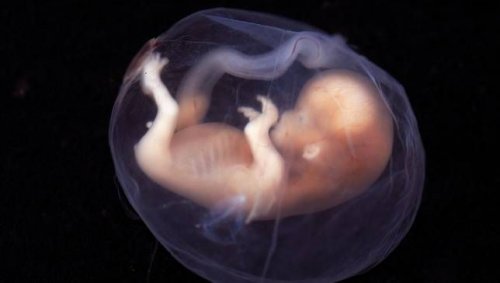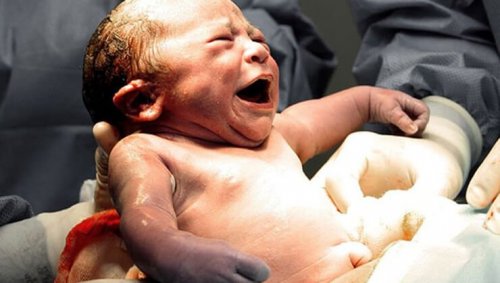Otto Rank and the Trauma of Birth

Otto Rank, an Austrian psychoanalyst, was the first to talk about the trauma of birth. His central theory is that being born is the first trauma humans experience. The abrupt separation from our mother and sudden exit from a protected environment to a hostile world leave a lasting impact on us.
Otto Rank believed that the trauma of birth was the first chapter of neurosis and that it placed us firmly in the human realm. In other words, the realm of the impossible. This experience imbues us with an essential angst that stays with us for the rest of our lives.
“The Na’vi say that every person is born twice. The second time is when you earn your place among the people, forever.”
-Sam Worthington, Avatar–
The fact is that babies suffer during birth. The concept of birth trauma doesn’t exist only in the realm of psychology. It also exists in the medical field. The difference is that, in medicine, doctors see it from an anatomical and physiological point of view.
Otto Rank’s theory goes far beyond that idea. He argues that this initial trauma is one of the primary factors that define our psyche and the basis for future anxieties. His ideas are a source of controversy even today.
The psyche of a fetus
One of the sources of controversy around the trauma of birth has to do with brain development. Some believe that a baby’s brain isn’t developed enough to register its experiences as trauma, at least in the strict sense of the word. Yes, the baby suffers when it’s born, but many people believe that this suffering doesn’t determine the baby’s future mental health.

However, some studies show some highly complex mental phenomena in fetuses. Nilsson, Rottman, and Lukesch conducted a study that was particularly interesting. They studied the intrauterine life of fetuses of mothers who hadn’t wanted to get pregnant. They found that babies born to this type of mothers displayed the following behaviors:
- Apathy syndrome: Babies want to sleep all the time and aren’t very active.
- Hyperactive syndrome: The opposite of apathy syndrome. These babies are easily excited and cry a lot.
- Abnormal eating habits.
- Excessive vomiting.
The researchers concluded that a mother’s womb isn’t a neutral paradise. The fetus can sense physiological changes in their mother, and all of that has repercussions on the baby’s future behavior.
Birth trauma
Otto Rank believed that the origin of anxiety is birth trauma. Remember that the word “anxiety” comes from the Latin root word “angere” which means to choke or strangle. The first struggle of human life is going through the narrow birth canal, which squeezes and chokes the baby coming through.
Some researchers believe that when birth trauma is severe, the person will experience sensations similar to those they had at birth. Unexplained tachycardia, headaches that feel like extreme pressure on the skull, a feeling of drowning or suffocating, etc. All of these are the physical symptoms of a panic attack.

Otto Rank also identified a strong emotional component of birth trauma: the separation of mother and child. Consequently, birth trauma isn’t limited to physical sensations, but also the loss of the ideal state. According to Rank, this experience has a serious impact and makes us especially sensitive to all loss.
Controversy revolving the trauma of birth
Birth trauma gave rise to one of the biggest schisms in the history of psychoanalysis. Otto Rank was one of Freud’s disciples. However, his thesis challenged the central tenant of Freud’s Oedipus complex. This theoretical disagreement irreparably damaged their relationship.
Otto Rank’s birth trauma theory is not widely known. Nevertheless, an important number of psychoanalysts, psychologists, and doctors accept his ideas. In fact, some of those who ascribe to his work believe that going through therapy is like being born again. It’s a chance to overcome the first trauma of your life.

Freud’s theory is clearly more solid than Rank’s ideas about the trauma of birth. Nevertheless, we know more now about prenatal life and a baby’s first few months after being born. We know, for example, that a baby’s experiences during this time leave lasting impressions despite their underdeveloped nervous system. These experiences impact the human experience. They influence who we are and what we do with our lives.
This text is provided for informational purposes only and does not replace consultation with a professional. If in doubt, consult your specialist.








